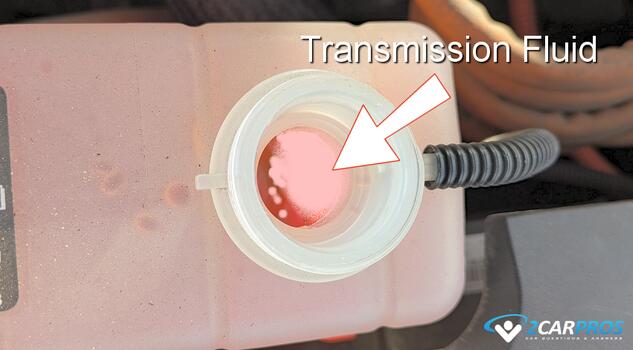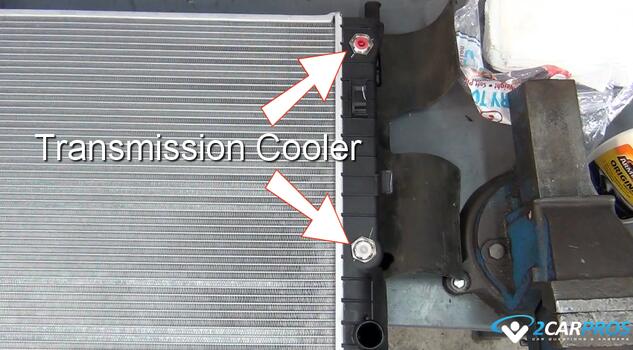Introduction
All automatic transmission vehicles are equipped with an transmission fluid oil cooler, when transmission fluid is discovered inside the coolant reservoir or the radiator it must be taken care of promptly to avoid transmission failure. In the guide below, we underline the causes and the steps required to fix the problem and help prevent costly repairs. This cooler is used to help maintain the transmission fluid temperature to avoid overheating which will damage the unit.
Causes of Automatic Transmission Fluid in the Coolant Reservoir
Because the transmission deals with hydraulic pressure which is transferred to the fluid cooler which is located inside the radiator, the failure of the cooler will result in transmission fluid inside the radiator fluid and cooling system. When the engine is started this pressure builds and will overcome the pressure inside the radiator contaminating the coolant.
What Will Happen?
After the engine is shut off, coolant can enter the transmission through the same crack in the cooler. This is because the cooling system retains it pressure, while the hydraulic pressure inside the transmission drops to 0. This is bad because this residual coolant pressure can get inside the transmission which will cause the unit to fail and the engine to overheat.
I Cant See the Cooler?
The transmission cooler line are connected to the radiator by utilizing steal tubing and fittings, the reason you can only see the fittings on the radiator is because the actual cooler is inside the radiator tank and is not visible. Here is what the automatic transmission cooler looks like in the radiator, there are incoming and outgoing fittings which the transmission fluid is allowed to enter and then exit back into the transmission.
After Repairs Are Completed
Once the transmission cooler (radiator) has been replaced, the cooling system will need to be flushed as well as the transmission fluid and filter. This will help remove the fluid contamination problem and protect the internal working of the transmission and engine.
Conclusion
There really is no way to help prevent this problem, it is solely a manufacturers defect when the problem occurs. The best thing to do is to regularly monitor fluid levels and promptly address any unusual changes. Automatic transmission fluid in the radiator coolant reservoir is a serious issue that requires immediate attention.
Watch the Video!
Please watch this video of the job being done to glean additional helpful information.
Credits
This guide knowledge base was created by the 2CarPros Team, and by Ken Lavacot: Automobile repair shop owner and certified master automobile technician of over 30 years. If you have question or need help please ask one of our experts we are happy to help. Please visit our 2CarPros YouTube Channel.





